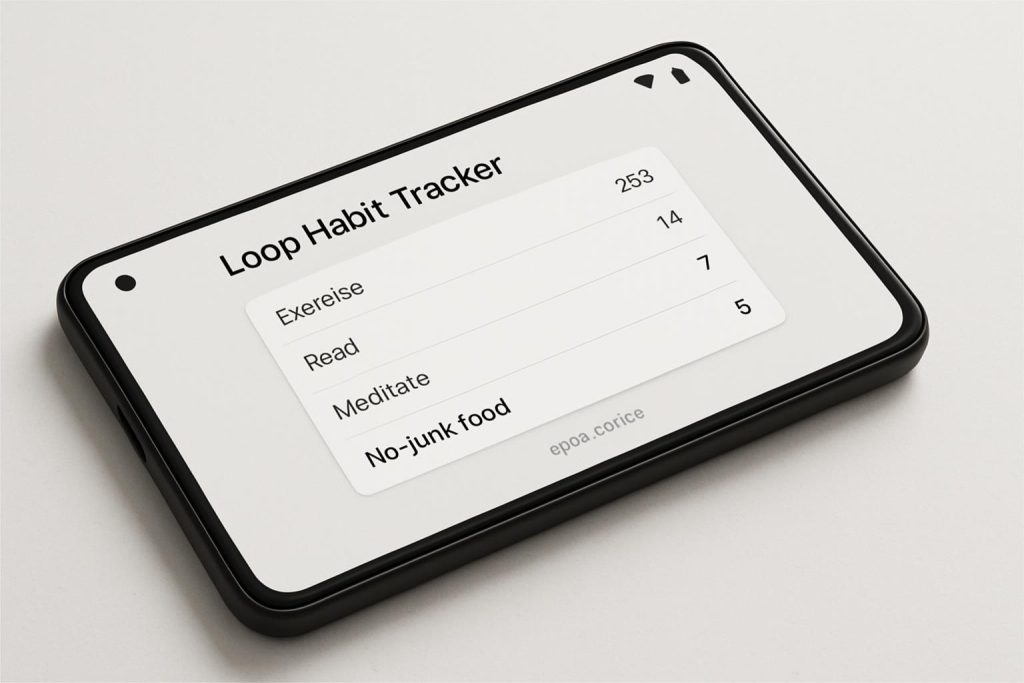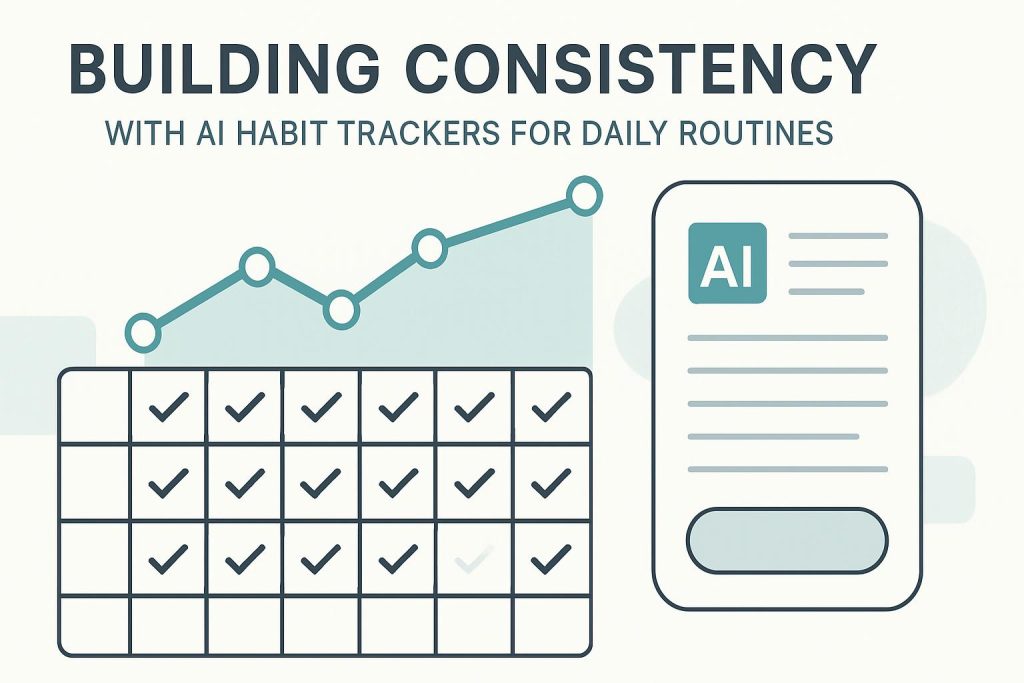In a world saturated with feature-rich, often complex applications, sometimes the most effective tool is the simplest one. When it comes to building habits, the elaborate dashboards, social features, or AI coaching of some apps can feel overwhelming or distracting. For users who value simplicity, speed, and a focus on core functionality, Loop Habit Tracker offers a compelling alternative. It’s a free, open-source Android application dedicated to one thing: helping you track your habits effectively with a clean, minimalist interface and insightful basic statistics.
Loop deliberately eschews the bells and whistles found in many other habit trackers. There are no gamification elements, no guided journeys, no complex AI analysis. Instead, it provides a straightforward, elegant platform to define your habits, check them off daily, and visualize your consistency through simple graphs and scores. Its strength lies in its simplicity, reliability, and respect for user privacy (being open-source and ad-free).
This article explores the advantages of Loop Habit Tracker’s minimalist approach, particularly for users seeking a straightforward tool for tracking habits and potentially correlating them with journaled moods or notes. We will cover:
- The philosophy behind minimalist habit tracking.
- Loop’s core features and user interface.
- How its statistics and visualizations support consistency.
- The benefits of its open-source nature.
- Who finds the Loop Habit Tracker most advantageous.
If you believe less is more when it comes to digital tools, understanding Loop’s minimalist advantage is key to seeing if it fits your habit-building style.
The appeal of minimalism in habit tracking
Why choose a simple tracker like Loop over more feature-packed options?
- Reduced Overwhelm: Complex apps can sometimes feel like another thing to manage. Minimalism reduces cognitive load, making the tracking process itself less demanding.
- Focus on Essentials: Simple apps keep the focus squarely on the core task: checking in and building consistency. There are fewer distractions or features to explore (or ignore).
- Speed and Efficiency: Minimalist apps are often faster and more responsive. Checking off habits takes mere seconds, minimizing friction.
- Clarity: A clean interface makes it easy to see your habits and progress at a glance without wading through menus or complex dashboards.
- Privacy and Control: Open-source apps like Loop offer transparency and often prioritize user privacy over data collection for complex AI features.
For many users, these benefits outweigh the lack of advanced coaching, gamification, or deep analytics.
Core features and interface of Loop
Loop Habit Tracker is designed for simplicity and ease of use:
- Clean List View: The main screen presents your habits in a simple list. You check off completed habits with a quick tap or hold.
- Flexible Scheduling: Define habits as daily, or occurring on specific days of the week, or repeating at intervals (e.g., every 3 days, twice a week).
- Reminders: Set customizable reminders for each habit to ensure you don’t forget.
- Widgets: Place widgets on your Android home screen for even faster check-ins without opening the app.
- Notes: Crucially for integration with journaling insights, you can add brief notes to each habit check-in. This allows you to manually log context, mood, or reflections related to that specific habit on that day (e.g., noting “Felt tired” on a missed workout, or “Great session!” on a completed meditation).
- Data Export: Export your tracking data to CSV format for analysis in spreadsheets or other tools if desired.
Statistics and visualizations: simple but effective
While minimalist, Loop provides useful data visualizations:
- Habit Score: Loop calculates a score for each habit based on your consistency and recent history. This score adapts over time, providing a dynamic measure of how strong the habit currently is.
- Streaks: Clearly displays your current and best streaks for each habit.
- Frequency Calendar: A simple calendar view shows checkmarks for completed days, providing a quick visual overview of your history for a specific habit.
- Graphs: Basic graphs show your habit score trend over time and the frequency of completions, offering insights into long-term consistency.
These visualizations provide essential feedback without becoming overly complex or data-heavy.
The open-source advantage
Loop Habit Tracker being open-source offers several benefits:
- Free and Ad-Free: The app is completely free to use with no advertisements, providing an uninterrupted experience.
- Transparency: Anyone can inspect the source code, ensuring there are no hidden trackers or questionable data practices.
- Privacy Focused: Open-source apps typically prioritize user privacy, and Loop does not require unnecessary permissions or cloud accounts.
- Community Driven (Potentially): While development pace varies, open-source projects can benefit from community contributions and feedback.
This commitment to openness and privacy appeals to users wary of commercial apps and their data practices.
Correlating with journaling: the manual approach
Loop doesn’t have built-in AI to correlate habits with moods automatically. However, its Notes feature provides a simple yet effective way to manually link tracking with journaling insights:
- Maintain a Separate Journal: Use a digital or physical journal for detailed reflections on your day, mood, and thoughts.
- Use Loop Notes for Context: When checking off a habit in Loop, add a brief note summarizing your mood, energy level, or any relevant circumstances (e.g., “Good mood,” “Stressed,” “Skipped – busy day”).
- Review Together: Periodically review your Loop history (including notes) alongside your journal entries for the corresponding days. Look for patterns: Do days with certain notes in Loop correspond to specific themes or moods in your journal? Does completing certain habits consistently align with positive journal entries?
This manual correlation requires more effort but offers a high degree of privacy and control, allowing you to connect the dots based on your own reflections rather than relying on an algorithm.
Who is Loop Habit Tracker best for?
Loop is an excellent choice for:
- Minimalists: Users who prefer clean, simple, and focused applications.
- Android Users: It is currently available only on the Android platform.
- Privacy-Conscious Individuals: Those who value open-source software and minimal data collection.
- Users Seeking a Free Solution: It offers robust core functionality without any cost or ads.
- People Who Prefer Manual Correlation: Individuals comfortable linking habit data with separate journal entries through notes.
- Those Easily Distracted: Users who find gamification or complex features more distracting than motivating.
It might be less suitable for:
- iOS Users: It is not available on the App Store.
- Data Enthusiasts: Users wanting deep analytics, predictive insights, or advanced charting might find Loop too basic.
- Gamification Fans: It lacks any game mechanics or social features.
- Users Seeking Guided Coaching: It provides tracking tools but no coaching or structured programs like Fabulous.
In conclusion, Loop Habit Tracker demonstrates the power of simplicity. By focusing on core habit tracking functionality within a clean, open-source, and ad-free interface, it provides an effective and distraction-free tool for building consistency. While it lacks advanced AI or gamification, its straightforward statistics, flexible scheduling, and crucial Notes feature offer significant advantages for minimalist users, particularly those willing to manually correlate their tracking data with broader journaling practices for deeper self-awareness. Check our previous posts Mastering habits: AI tools for personal growth today and Digital journaling: AI apps for tracking habits & moods for a comprhensive guidance and enlightenment.


